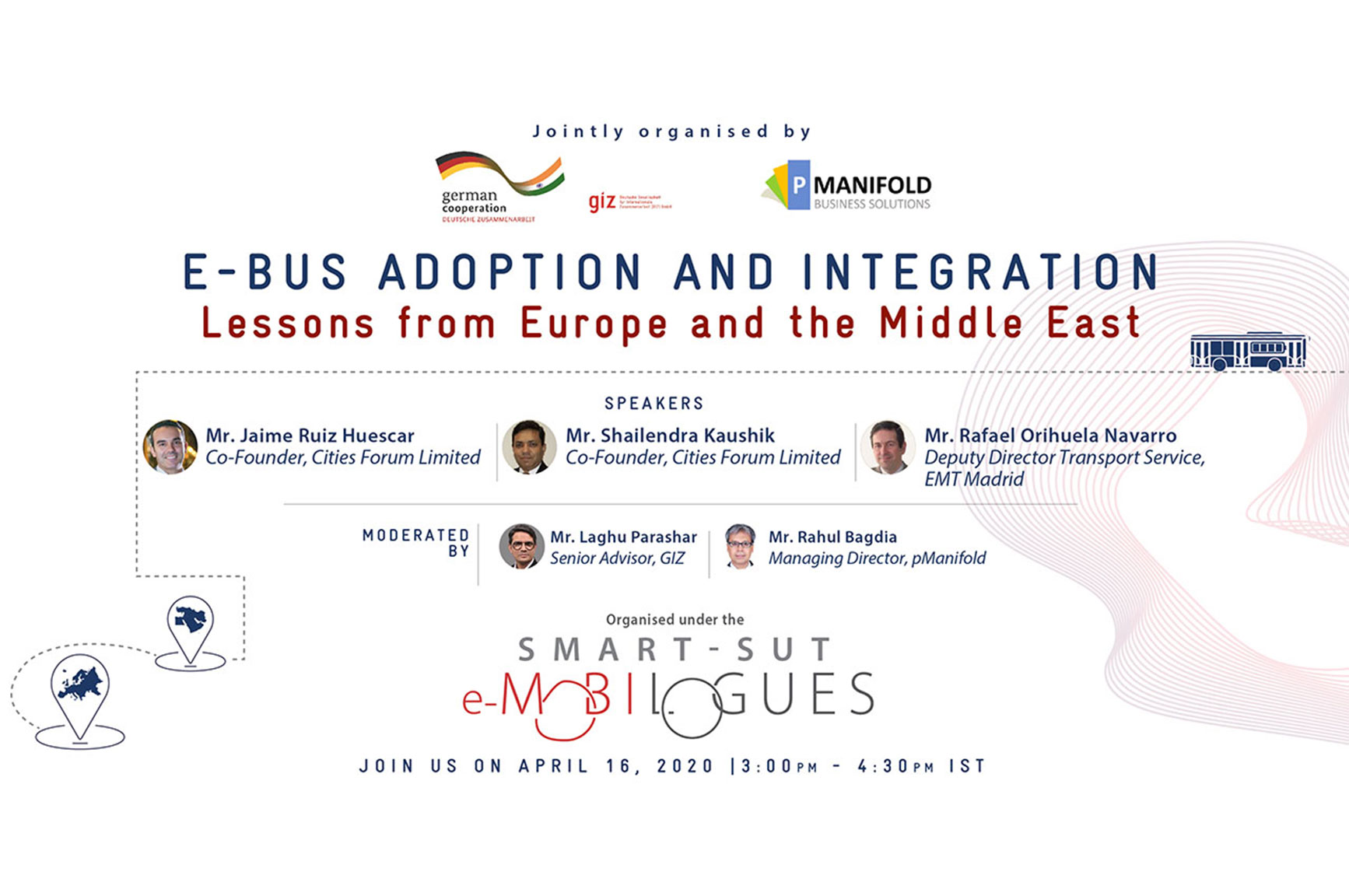
e-Bus Adoption and Integration: Lessons from Europe and the Middle East
Worldwide, public transport systems run predominantly on fossil fuels, leading to increased carbon emissions, growing concerns over urban air quality and contributing to growing high fuel imports. The clean public transportation, especially transition to the electric bus (or e-Bus), is expected to not only help reduce carbon emission/footprint but also save fuel. It also addresses the issue of congestion on roads by promoting shared mobility. One of the studies estimates the electric bus market to increase from 137 thousand units in 2019 to 935 thousand units by 2027.
India is reported to have 350+ e-Buses plying on roads as of 2019, contributing ~0.2% to the State Transport Undertakings (STUs) fleet of ~1,36,000 buses. These early deployments are supported through the combination of subsidies from the Centre (FAME-I) and State. The Government has sanctioned 5000+ e-Buses in 64 cities for intracity and intercity operations over the next 3 years. However, there are still several barriers that are holding back STUs in India for more aggressive adoption, including – high upfront cost; technology apprehension; limited end of life performance data available; lack of debt financing; limited experience of OEMs suppliers in India; limited Operators (outside e-Bus OEMs) to run and manage e-Buses for STUs; evolving e-Bus contracting models; limited exposure to e-buses planning, procurement, operations & maintenance, charging infra setup and operations, integration with legacy fleet; and others.
This webinar, 2nd in the e-Mobilogues series, will bring global experts sharing their experiences from Europe and the Middle East and answer the following questions:
- How has been their experience in e-Bus deployments/ early assessments and with what benefits?
- What global best practices can be adopted by Indian STUs/ Transport Authorities for e-buses induction and integration?
- What planning/ decision matrix support is being provided to Transport Officials/ Government in overall e-Bus Strategy?
- What considerations for Cities/ STUs to procure and integrate e-buses appropriately?


